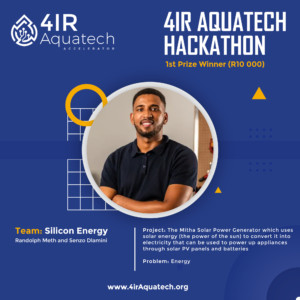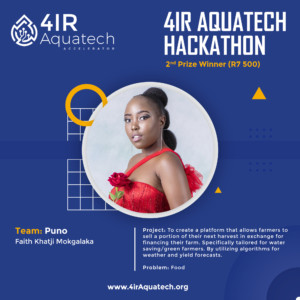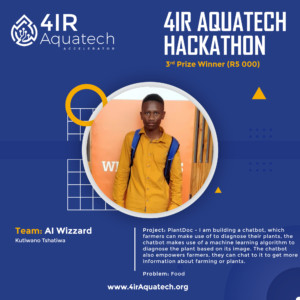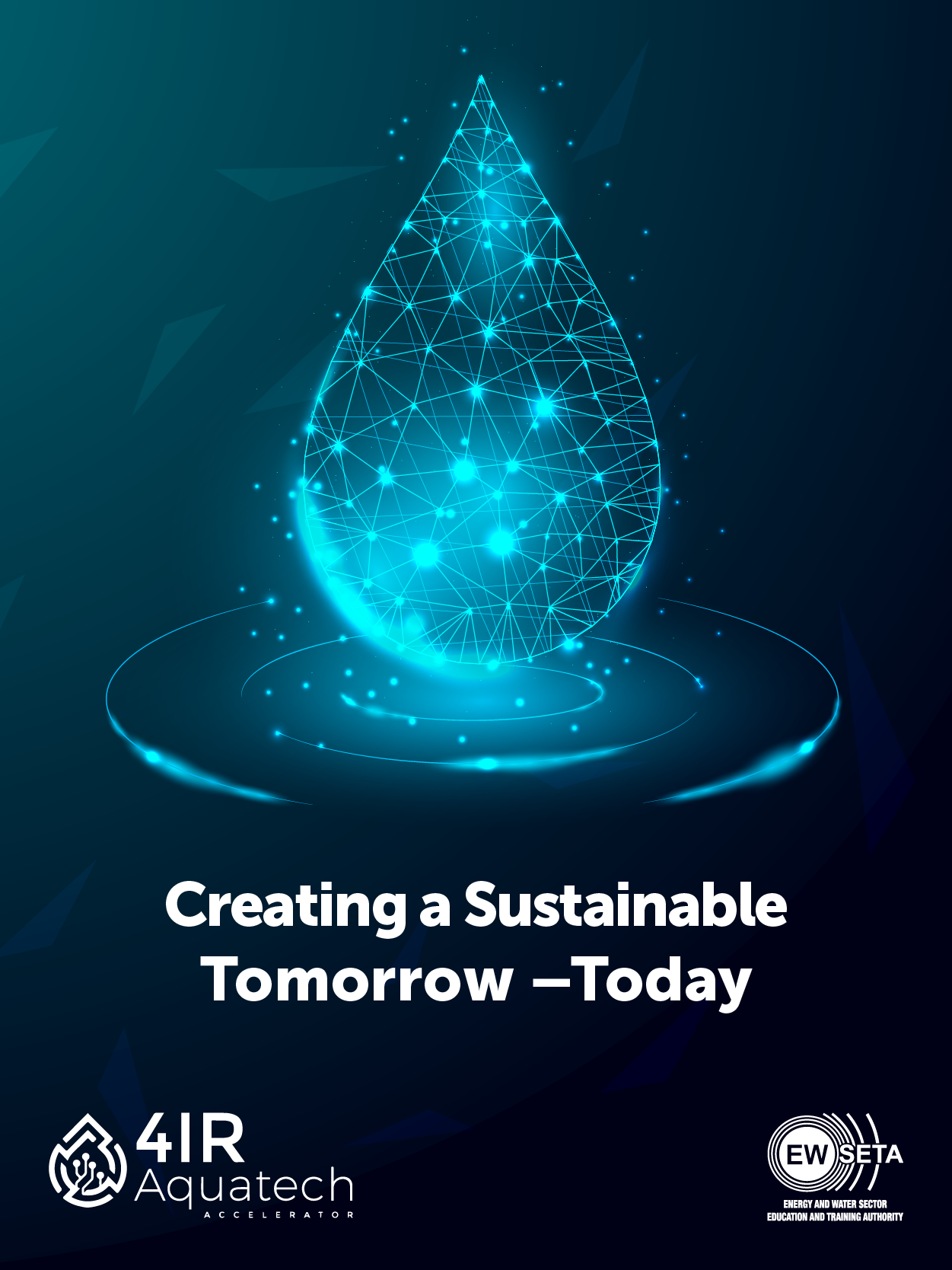The Role of 4IR in Addressing Food-Energy-Water Challenges.
EWSETA Capacitates Entrepreneurs to address Eastern Cape Food-Energy-Water challenges through 4IR solutions
If one were to consider the challenges South Africa faces when it comes to water alone, the task is a mammoth one, considering water directly affects not only the country’s socio-economic development, but the challenge is exacerbated by the fact that water is becoming an increasingly scarce resource. Based on current usage trends, South Africa is expected to face a water deficit of 17% by 2030, and this shortage will be worsened by climate change. Water in South Africa has moved from being a marginal input to a central enabler of food security, energy security, as well as climate security.
Ensuring water, energy and food security is a responsibility for all.
The EWSETA has partnered with the 4IR-AquaTech Business Accelerator programme, which aims to capacitate young entrepreneurs with skills through a 6-month mentorship programme designed to identify, develop support, fund and upscale a new generation of 4IR enabled solutions to address food – energy – water challenges, with a particular focus on the crisis playing out in the Eastern Cape currently. The 4IR-AquaTech Business Accelerator programme has been developed by ICRD Group Holdings, an organisation that spearheads innovative entrepreneurship development programmes to help participants and alumni to become CEOs of their own successful businesses in the water and energy sector. Its mission is to accelerate youth and women participation in the emerging Green Economy (GE).
Lucky Litelu, Group Chief Executive for the ICRD Group, explains the importance of this EWSETA programme for entrepreneurs: “South Africa’s historical disparity has rendered it difficult for entrepreneurs from previously disadvantaged communities to participate effectively in the mainstream economy due to lack of technical know-how, development resources, adequate financing and access to sustainable markets.”
Twenty 4IR-AquaTech companies will be put through their paces on an intensive 6-month training, coaching and mentoring programme, that will also see these start-ups matched with cutting edge technologies and market access opportunities. An important element of the programme is the widely-tested ‘Sustainable Sanitation and Water Management’ capacity development tool in the water, sanitation and resource management sector, which will serve as a key resource during training sessions.
“EWSETA is excited to be leading a programme such as this one as we are mandated to drive entrepreneur and SMME development in the energy and water sectors given the critical role they pay in addressing energy and water challenges and driving economic growth,” comments Mpho Mookapele, CEO for the EWSETA. “Furthermore, South Africa is rich with young minds that can drive innovative solutions for the challenges we face. Our role as EWSETA is to provide a platform for these young minds and ignite the passion of our innovators so that they become part of the much-needed solutions that will change the narrative of poverty and undignified state of living for many of our people.”
An important element of the programme was the online 4IR Aquatech Hackathon held on 26 and 27 June 2021. A hackathon (also known as a hack fest) is a gathering of like-minded people ranging from programmers, scientists, designers, entrepreneurs, community leaders, cultural creatives, thought and practice leaders to solve social or business-related problems using technology.
The event was held in collaboration with the Eastern Cape provincial government, The Business Clinic, Geekulcha, Centre for Public Service Innovation (the CPSI), ASPIRE and Water Institute of Southern Africa (WISA). It brought together young entrepreneurs and innovators, community leaders, activists, as well as thought and practice leaders to work on exploring and developing sustainable solutions, as collective action plays a vital role in building an inclusive and sustainable future for all. By collaborating to mitigate risks, seize opportunities, as well as preserve and maintain this valuable shared resource, we can create resilient and sustainable futures for our people. These collective actions focus on what can be achieved in partnership with civil society, the public and private sectors.
Commenting on the 2021 4IR Aquatech Hackathon, Lucky Litelu says: “We have been waiting for this opportunity for a very long time and I am delighted that the hackathon has finally become a reality. The spirit of the Hackathon is really about bringing together cross-sector partners to explore solutions to issues which are pressing in our time.”
As a precursor to the Hackathon, on 24 June 2021, a socio-technical debate took place to focus on the current water, energy and food security challenges in the Eastern Cape. In his opening address, Director-General for the Province, Mr Mbulelo Sogoni, stated: “Without the leadership provided by the CEO of EWSETA, we would not be here today.”
These events are a direct result of a joint collaborative agreement entered into between the EWSETA with the Office of the Premier in the Eastern Cape Energy which seeks to drive skills development initiatives and to capacitate entrepreneurs in the Eastern Cape region with skills to implement 4IR enabled solutions to solve the energy, water, and food challenges in the province.
“Whilst as a country we still have a long way to journey before we can confidently say we have the solutions to addressing the myriad of challenges in the energy and water sectors, it is through innovative approaches and programmes like this one, driven by entities like EWSETA who are stepping up and acknowledging the critical role young entrepreneurs play in finding these solutions, that we will achieve greatest impact,” concludes Mookapele.
Hackathon Winners




